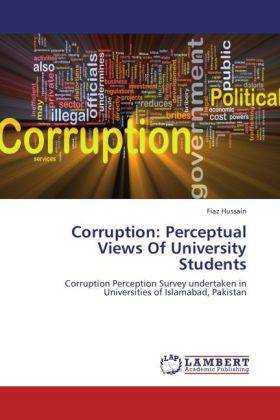
- Afhalen na 1 uur in een winkel met voorraad
- Gratis thuislevering in België vanaf € 30
- Ruim aanbod met 7 miljoen producten
- Afhalen na 1 uur in een winkel met voorraad
- Gratis thuislevering in België vanaf € 30
- Ruim aanbod met 7 miljoen producten
Zoeken
€ 48,45
+ 96 punten
Omschrijving
Corruption is such a variable that is hard to measure and it is equally difficult to quantify. Therefore, a worldwide practice is to assess the perception of corruption among people. Applying the same approach, this Book analyzes the extent, location and seriousness of corruption in Pakistan and finds out causes of corruption and lastly assesses the appropriateness of different anticorruption strategies. The work is based on descriptive-survey type research. It assesses the level of perception of corruption among university students. The students perceive that the incumbents of political government are not exhibiting any political will to combat corruption from public organizations. Majority of the students have close experience of corruption. They perceive the weak accountability mechanism is the major cause of corruption in government departments and consider that education curriculum should place more emphasis on moral values to bring behavioural change against corruption.
Specificaties
Betrokkenen
- Auteur(s):
- Uitgeverij:
Inhoud
- Aantal bladzijden:
- 92
- Taal:
- Engels
Eigenschappen
- Productcode (EAN):
- 9783659227264
- Verschijningsdatum:
- 10/09/2012
- Uitvoering:
- Paperback
- Formaat:
- Trade paperback (VS)
- Afmetingen:
- 152 mm x 229 mm
- Gewicht:
- 145 g

Alleen bij Standaard Boekhandel
+ 96 punten op je klantenkaart van Standaard Boekhandel
Beoordelingen
We publiceren alleen reviews die voldoen aan de voorwaarden voor reviews. Bekijk onze voorwaarden voor reviews.











